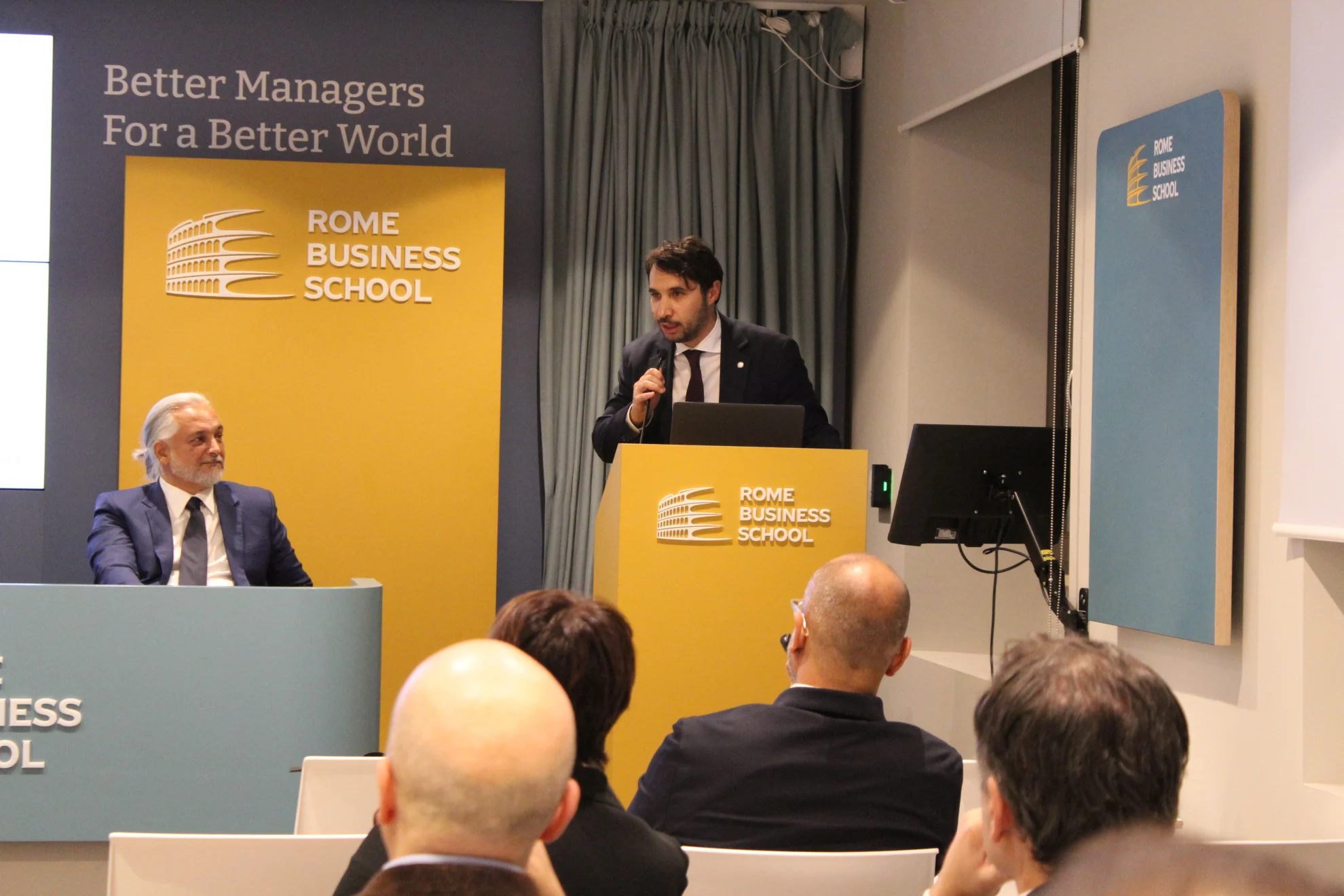Education and Employment in Italy: Challenges and Opportunities – What Lies Ahead?

Rome, October 27th – The event “Innovation, Human Capital, Business, and Public Administration” at the Rome Business School has brought to light a series of significant data regarding education, the job market, and innovation in Italy. The event, organized by the Rome Business School in collaboration with Converger and IGF – Internet Governance Forum Italy, gathered experts and professionals to discuss the future of education and employment in the country. Below, you’ll find some of the key data that emerged from the event.
The Significance of Postgraduate Education
One of the highlights is the importance of postgraduate education. Three-year undergraduate programs offered by top universities and business schools have demonstrated a high salary multiplier effect, with earnings increasing up to 2.5 times in the first five years after graduation. Moreover, a specialized bachelor’s degree is increasingly valued, with 40% of job offers for managerial positions requiring a Master’s degree as a preliminary requirement. Advanced degrees like an MBA often guarantee access to the job market and salary improvement.
Youth Unemployment and School Dropout
Italy continues to grapple with high youth unemployment and early school dropout rates. The youth unemployment rate remains high, and early school dropout affects about 19.7% of students, with peaks of 33% in some regions. In 2020, employment in Italy took a severe hit, especially among young people and women, with one in five young individuals giving up on job-seeking opportunities.
Multidisciplinary Training and Transferable Skills
To tackle the challenges posed by automation and artificial intelligence, the adoption of a “T-shaped” training model is essential. This model combines deep vertical specialization with horizontal transferable skills, preparing workers for various roles in multidisciplinary and multicultural contexts. Transferable skills will have significant weight in the future, as many tasks will be automated through artificial intelligence.
Changes in the Job Market
The Italian job market is undergoing significant changes. Automation could affect up to 47% of job profiles, but there will also be new opportunities in fields like healthcare, artificial intelligence, and content creation. 80% of corporate executives are expediting plans to digitize work processes and implement new technologies. Flexibility has become essential, with growing interest in remote work and a work-life balance.
Start-Ups and Investments
Innovative start-ups in Italy are on the rise, with an estimated 16,256 expected by the end of 2023, primarily focusing on the information and communication sectors, with strong growth in e-commerce and fintech. Venture capital investments are expected to increase by 38.1% in 2023, with 730 new investments.
Green Transition and Employment
The green transition in Europe represents a significant economic opportunity, with a net benefit of 1.8 trillion euros by 2030. Italy leads the European ranking in circularity trends, surpassing regions like Tuscany and Trentino-Alto Adige.
The experts present at the event have contributed to outlining the current situation and the future of education and employment in Italy. Among the distinguished experts present were Prof. Valerio Mancini, Director of the Divulgative Research Center at the Rome Business School, Hon. Anna Laura Orrico, former Undersecretary of State at the Ministry for Cultural Heritage and Activities in the Conte II government and current member of the Chamber of Deputies, Hon. Mattia Fantinati, Undersecretary of State for Public Administration in the Conte I government and President of IGF Italy, Eng. Franco Sanseverino, CEO of Converger, along with the company’s Technical and Finance and Control directors: Eng. Giovanni Melis and Dr. Barbara Verdolocco.
In summary, the event at the Rome Business School has provided a comprehensive overview of the challenges and opportunities awaiting Italy in the fields of education and employment, with postgraduate education, multidisciplinary training, and flexibility emerging as key elements for successfully addressing the future.




